Gallagher Marine Systems and ECM Maritime Services Merge
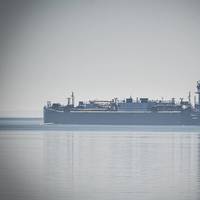
Moorestown, N.J. based Gallagher Marine Systems (GMS) and Wilton, Conn. based ECM Maritime Services (ECM) have merged as of June 30, 2023, forming a single maritime regulatory consulting, compliance, emergency preparedness, security and response firm.All key personnel from both companies will remain intact as the combined companies integrate software platforms, workflows and staff into a combined organization. In the interim, both GMS and ECM operations will continue unchanged.The collective company will be led by current GMS president and former ECM employee, Thomas Wiker.
Subchapter M: Slow Walking the Inspection of Towing Vessels
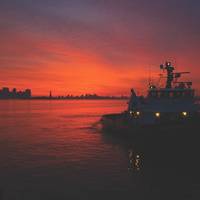
On June 20, 2016, the U.S. Coast Guard promulgated its long awaited or dreaded (depending on your perspective) final rule regarding inspection of towing vessels. The new regulations, which will enter into effect on July 20, derive from a 2004 legislative amendment which added towing vessels to the list of ‘vessels subject to inspection’. That statute also authorized regulations to establish a safety management system for towing vessels and maximum hours of service and related provisions for individuals engaged on towing vessels.
Automated Skill Erosion
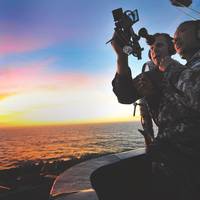
The increasing automation of vessels is causing some mariners to lose basic maritime skills. During dinner on June 10, 1995, the last night before the cruise ship Royal Majesty was due to arrive in Boston from its voyage to Bermuda, the master bragged to the passengers at his table that his ship could never run aground because it had all the latest electronic equipment, including a navigation system that integrated the GPS signals and other information. At 2225 that night the ship grounded on the Rose and Crown Shoal near Nantucket. It was 17 miles west of its planned trackline.
Arctic Coast Guard Forum: Eyes and Ears Up North
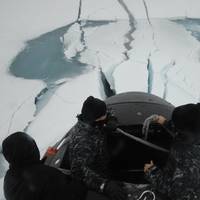
On October 30, 2015, at the U.S. Coast Guard Academy in New London, Connecticut, the heads of eight agencies fulfilling the functions of Coast Guard of Canada, Denmark, Finland, Iceland, Norway, the Russian Federation, Sweden, and the United States signed a Joint Statement formally establishing the Arctic Coast Guard Forum (ACGF). The ACGF is an independent, informal, operationally-driven organization. It is not bound by treaty, but will work in cooperation with the Arctic Council to foster safe, secure, and environmentally responsible maritime activity in the Arctic region.
The Latest on Ballast Water Mismanagement

On October 5, 2015, the United States Court of Appeals for the Second Circuit issued a 65-page decision holding that, for the most part, the 2013 Vessel General Permit (VGP) promulgated by the Environmental Protection Agency (EPA), was arbitrary, capricious and not in accordance with the law. The court declined, though, to vacate the VGP, but allowed it to remain in effect until the EPA issues a new VGP. The 2013 VGP had adopted, almost completely, the standards established in the International Convention for the Control and Management of Ships’ Ballast Water and Sediments…
North Pole: The Latest Tourist Trap

On August 16, 2015, the geographic North Pole was visited by a Russian surface ship for the one-hundredth time. The Russian nuclear icebreaker 50 Let Pobedy (50 Years of Victory) carried 106 tourists from 16 different countries. This was the icebreaker’s seventh cruise to the Pole just this season. Each voyage takes just less than two weeks round trip, and that includes a full day of partying at the top of the world. This is all available for a starting cost of $26,995 per person for a basic two-person cabin with a standard twin bed…
Sleep Apnea

On June 23, 1995, the cruise ship Star Princess, carrying 1,568 passengers and 639 crew, grounded on charted and marked Poundstone Rock in the Lynn Canal of Alaska. Although there were no deaths or injuries, the ship’s bottom was ripped open. Repairs cost $21.16 million. The National Transportation Safety Board (NTSB) determined that the probable cause was the pilot’s poor performance, which may have been exacerbated by chronic fatigue caused by sleep apnea. Among other things, the NTSB recommended that the U.S.
The Lowdown on Ocean Acidification

Scientists say that the world’s oceans are acidifying. This term is correct, but somewhat misleading. Until recently, the oceans have had (so far as can be determined) a pH level of about 8.4 for millennia. A pH of 7.0 is neutral. Thus, the oceans are alkaline, not acidific. But, since the beginning of the industrial age when emissions of carbon dioxide started to rise, the oceans’ pH level has dropped to 8.3 and the waters have become less alkaline. Some argue that that is not a big change in 200 years. But it is the largest change known to have occurred in 20 million years.
Shore Leave: Re-think on Balancing Security, Seafarer Rights
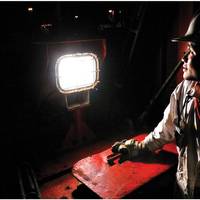
Before port states became hyper-sensitive to security issues, shore leave was natural part of a seafarer’s life. You worked long and hard hours at sea, often for extended periods of time on long voyages. When the ship reached port, you went ashore and decompressed, connecting with family and friends. That and much more changed after the terrorist attacks of 11 September 2001. The IMO adopted the International Ship and Port Facility Security (ISPS) Code mandating enhanced security onboard vessels subject to the SOLAS Convention.
Marine Casualty Reporting: Addressing the Coast Guard's Processes

The United States marine casualty reporting and investigation processes as administered by the U.S. Coast Guard are seriously flawed and in need of major overhaul. These processes have been broken for years, yet minimal efforts have been made to address the root causes. The Coast Guard is drowning in marine casualty reports. The majority of its informal investigations are never closed. Those that are closed are seldom read again. Lessons that might have been learned from marine casualties are rarely shared with the maritime industry. It is time to go back to basics.
Underway on LNG

On 17 January 1955, Commander Eugene P. Underway on LNG has an opportunity to signal an equally significant change in the merchant marine. On February 6, 2015, the newly built Harvey Gulf International Marine offshore supply vessel (OSV) Harvey Energy was bunkered for the first time by liquefied natural gas (LNG) delivered by tank truck in Pascagoula, Miss. After receiving classification from the American Bureau of Shipping (ABS) and a Certificate of Inspection from the US Coast Guard, Harvey Energy got underway for its homeport of Port Fourchon, Louisiana.
Resilience & the Maritime Industry

Resilience is defined generally as the ability to recover quickly from setbacks. Setbacks are inevitable. Individuals and entities are best judged by their resilience – their ability to get back on track after experiencing a reversal. The best way to recover from a setback is to anticipate the setback in advance and plan a recovery strategy. At the most basic level, this is something we do all the time. We keep spare batteries in the house so that when the flashlight or television controller dies, we can quickly bring it back into operation.
Dynamic Positioning & the Potential for USCG Regulations
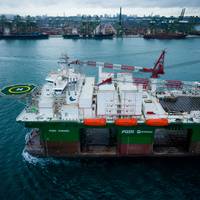
Dynamic positioning is a vessel capability provided by integration of a variety of individual systems and functions to automatically maintain a vessel’s position and heading by use of the vessel’s propellers and thrusters, and has been in use, particularly in the offshore oil and gas exploration business since the 1960s. To date, use of dynamic positioning has relied on industry best practices, classification society rules, and guidance from the International Maritime Organization (IMO). If the US Coast Guard has its way, that may change soon.
Maritime Quarantine & Isolation

Seven years ago, I authored an article on quarantine and isolation. With the outbreak of Ebola virus disease (EVD) in West Africa, it is time to dust off and update that article. The concepts of quarantine and isolation lie at the juncture of medicine, law and public safety. When these concepts intersect with the maritime community, things quickly get both interesting and complicated. Quarantine and isolation have been invoked in cases of communicable diseases throughout human history. Special treatment of lepers is mentioned in the Bible.
Offshore Supply Vessels: The U.S. Can Compete
After all, the industry was created in America ... it is only appropriate that the United States dominate it again. Offshore supply vessels (OSVs), also known as platform supply vessels (PSVs), have been a distinct vessel type since 1956, when the MV Ebb Tide was placed into service in the Gulf of Mexico. Ebb Tide was designed by Alden J. “Doc” Laborde to meet the growing demand for vessels to service the increasing number of offshore oil drilling rigs in those waters. Previously, this new industry had been served, albeit inadequately, by existing vessels, particularly surplus amphibious assault barges. Ebb Tide was designed with the pilot house at the bow and with an open deck from there aft to the stern.
Unpredictable & Dangerous Rogue Waves
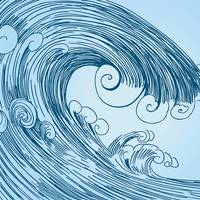
Ever since man has taken vessels onto the seas, mariners have reported encounters with monstrous waves that seem to arise out of nowhere from an otherwise average sea state. On his third voyage to the New World in 1498, Christopher Columbus recorded in his logbook that a giant wave lifted up his vessels as they transited the waterway between the Paria Peninsula of Venezuela and the island of Trinidad, a waterway he then named Bocas del Dragón (the Mouths of the Dragon). In 1853…
Polar Code Afoot

The IMO is on the verge of adopting the Polar Code, something that is important and long overdue. The International Maritime Organization (IMO), a specialized agency of the United Nations, is on the verge of adopting the Polar Code. When implemented, it will establish the first mandatory rules for operation of commercial vessels in polar waters. This important step is long overdue. On 18 January 2010, the IMO adopted voluntary guidelines for ships operating in polar waters (Res. A.1024).
OSRO: The Child of Necessity

Most people in the maritime industry in the United States are familiar with the concept of the Oil Spill Removal Organization (OSRO). It is one of the many quiet successes of the Oil Pollution Act of 1990 (OPA 90) and has enhanced the prompt and efficient cleanup of spills of oil and hazardous materials into waters of the United States. The curious thing about OSROs is that they are not mentioned in OPA 90. OSROs, as a recognized industry, were created following enactment of OPA…
The Treatment of Foreign Seafarers
The United States effectively treats foreign seafarers more harshly than any other group that enters the country without breaking the law. The general rule is that all persons who are not U.S. nationals or permanent residents must have a visa to enter the United States. Persons desiring to become U.S. citizens or permanent residents must obtain an immigrant visa. Most other persons desiring to enter the United States for a limited period of time must obtain a nonimmigrant visa. To obtain a nonimmigrant visa, one must have a valid passport and complete the Nonimmigrant Visa Application, Form DS-160 and submit it and a photograph (head shot) to the relevant U.S. embassy or consulate.
U.S. Coast Guard Doing Less with Less

Funds appropriated for use by the US Coast Guard are about to be decreased – again. The service’s funding has decreased in four of the previous five fiscal years, generally by 1% each year. The Administration’s budget request for FY 2016 has just been submitted to Congress. It calls for a 6.2% decrease in Coast Guard funding. For FY 2015, the Coast Guard was appropriated $10,438,120. For the upcoming year, the Administration is requesting only $9,796,995. The budget request identifies various minor cuts.
Arctic Taskings for the Coast Guard
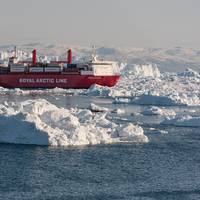
On January 30, 2014, the White House released the Implementation Plan for the National Strategy for the Arctic Region. The purpose of the Implementation Plan is to put flesh on the bones of the May 10, 2013 National Strategy for the Arctic Region. The National Strategy had identified three lines of effort to address challenges posed by the changing Arctic environment. The Implementation Plan sets forth the methodology, process, and approach for executing the Strategy. Most importantly…
U.S. Coast Guard Must Assert its Authority

It is time for the Coast Guard to defend the authority granted to it by Congress, the Executive Branch and the courts. On December 27, 2013, the U.S. Coast Guard issued a notice stating that it intended to promulgate a rule containing its assessment framework for, and restating its position regarding, the federalism implications of regulations issued under the authority of various statutes within Titles 33 and 46 of the United States Code. Public comment on the proposed rule should be submitted by March 27, 2014.
Nontank VRP Regs
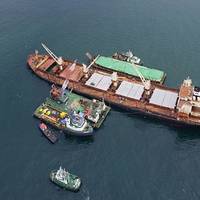
The clock is ticking toward the deadline to submit to the U.S. Coast Guard an oil spill response plan that meets the requirements of the NTVRP regulation. The long-awaited nontank vessel response plan (NTVRP) rulemaking was published on September 30, 2013 and came into effect on October 30, 2013. Neither of these are significant dates for the owners, operators, and masters of nontank vessels operating on the navigable waters of the United States. The truly significant date is January 30, 2014.






